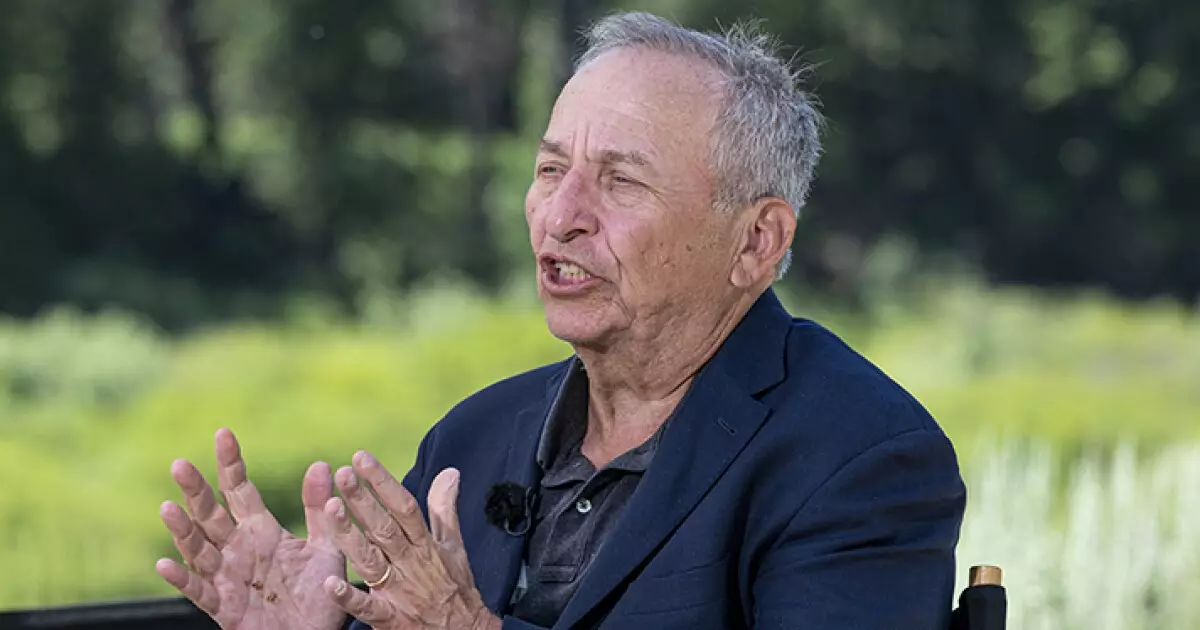As former Treasury Secretary Lawrence Summers predicts, the anticipation surrounding Donald Trump’s next selection for Federal Reserve Chair brings a mix of optimism and skepticism. While Summers expresses confidence that Trump will appoint a widely accepted candidate, the reality of political dynamics suggests otherwise. With the president’s proclivity for disrupting norms, one can’t help but wonder if a choice that aligns with traditional economic thought is in the cards. History shows us that populist tendencies can lead to unexpected outcomes—especially when the stakes involve monetary policy, which directly influences every American’s economic reality.
The question that looms large is whether Trump truly understands the delicate balance required to steer the country’s monetary policy. Recent bashing of Jerome Powell reveals a lack of patience and long-term vision typical of populist leaders. Instead of recognizing the necessity to maintain stability within the Federal Reserve, Trump’s Twitter rants and self-referential humor—musing about appointing himself—merely stoke uncertainty in the markets. If Trump follows through on his jest, the implications could be catastrophic.
Market Reactions: The Real Influence
Summers rightly points out that any Federal Reserve chair appointment will be influenced by market reactions. The apprehension surrounding the stability of the financial sector is palpable, and Trump, for all his bravado, understands that any misstep could send ripples through the global economy. The existing unrest in financial markets when faced with uncertainty about the Federal Reserve’s direction demonstrates just how critical this decision is.
However, the idea that the president can charm the Senate into supporting a ‘reasonable’ candidate is naive. As much as there may be some sound voices within the Republican Party who advocate for stability, Trump’s divisiveness can overshadow any consensus. The notion that Scott Bessent is a potential candidate raises eyebrows; he is not the embodiment of ‘mainstream’ American economic thought that Summers advocates for. In fact, a choice like Bessent might be packaged as something moderate but could introduce uncharted waters where unpredictability thrives.
Political Blame Game: Setting Up for Recession
Summers’ insight that Trump’s call for interest rate cuts is not merely about the economy but strategic positioning is crucial to understanding the current political landscape. This isn’t just about economic policy; it’s about setting a narrative. If a recession materializes, Trump can shift the focus from his policies to the Federal Reserve, effectively creating a scapegoat. This exhaustive blame strategy underlines a level of opportunism that is detrimental to responsible governance.
Far from being an expression of sound economic policy, Trump’s calls for reduced rates reveal a desperate need to quell public anxiety over his administration’s economic record. Inflation and unemployment forecasts suggest that more turmoil could be on the horizon, exacerbated by trade tariffs, a legacy of his administration that continues to stifle economic growth. Will Trump’s next Fed pick dare to challenge the tariff strategy? It seems unlikely, which begs the question: does he want a sounding board or a straight-talking expert?
Economic Signals: Are We Listening?
Summers emphasizes the unprecedented scenario of simultaneous upgrades in inflation and unemployment forecasts from the Fed—a signal that should not be ignored. This isn’t toddler tantrums over interest rates; it’s the complex interplay of multiple factors that could lead to economic distress. If Powell’s term hasn’t instilled the necessary caution, the next chair may have an even tougher balancing act.
The supply shock hinted at isn’t merely an economic forecast; it’s a clear warning for anyone who dares to gamble on the current trajectory. The impact of tariffs has already rattled the core of the economy—the very essence of American manufacturing and consumer spending. Choosing a Fed chair who is aligned with a protectionist agenda rather than pragmatic economic strategies may plunge the nation deeper into uncertainty.
In the end, as we await Trump’s decision, it is crucial for stakeholders to remain vigilant. The next Federal Reserve Chair won’t just be an appointment; they will either reinforce a profitable future or become yet another obstacle in an already fragile economic landscape. The stakes are enormous, and the upcoming choice may just redefine America’s financial future.

